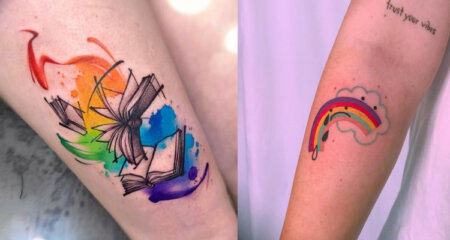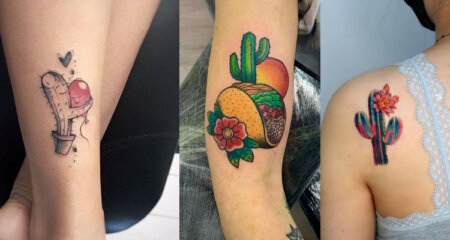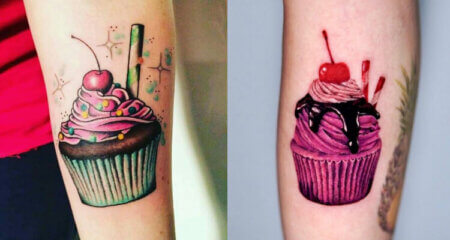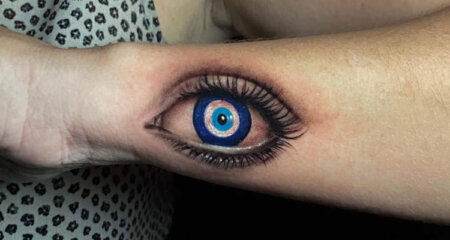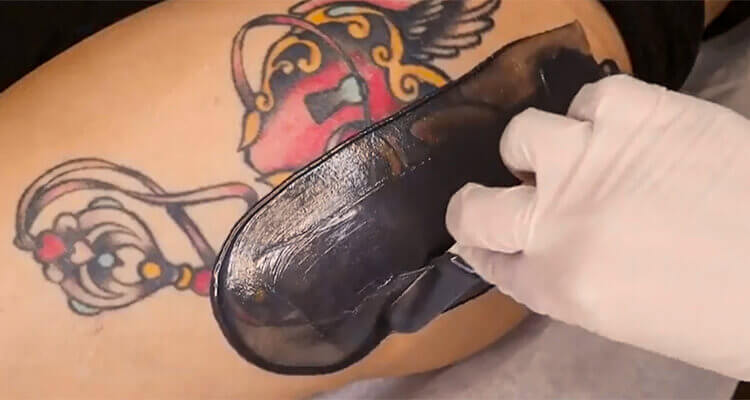
Can I Wax Over A Tattoo? – Aftercare of Waxing Over A Tattoo
Posted on
Tattooing or body artwork is in the mainstream today. Everyone, from an adult to old people, loves to get tattooed. Each tattoo wearer has his own story and reasons for having a tattoo. Some people even prefer to have more than one tattoo, while others go for overall body tattooing.
Whatever be the reason you wear a tattoo, with tattoos come too many questions. And one of the most common questions is – can I wax over a tattoo?
Of course, this is mostly asked by women who plan to wear a tattoo or already have one. As they say, “Aesthetics matter,” and waxing is one of the basic necessities for women.
So, if you also have the same question, please keep reading this post.
In this post, we’ll answer one of the most important questions: whether or not you can wax over a tattoo?
So, let’s get started…
Before we answer your question, let’s first understand the science behind the skin and how tattoos are created. Here we go…
The Science Behind Tattooing
The epidermis is the topmost layer of our skin, and it is responsible for both providing us with a waterproof barrier and determining the tone of our skin. Following that is the dermis, which is where our hair follicles and sweat glands are located on our bodies.
After that, we have the hypodermis, which is made up of the fatty tissue and connective tissue that is responsible for keeping us warm.
When getting a tattoo, the ink is injected into the dermis of the skin, which leaves a permanent mark on the surface of the skin that is comparable to a very deep scar.
So, now the question is, “Can I Wax Over A Tattoo?”
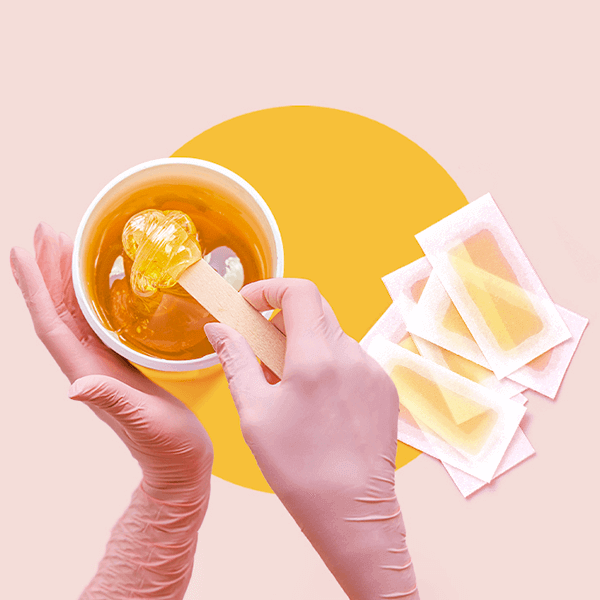
The quickest answer to it is YES, you can!
The epidermis, often known as the top layer of skin, is the part of the body that is targeted during the waxing process. Because of this, it does not come into contact with any of the other layers of skin. This prevents the wax from coming into contact with or affecting any tattoos that may be located in the dermis layer of the skin, which lies beneath the epidermis.
Waxing is seen as a risk-free procedure since it does not impact the deeper layers of the skin, which are where the ink is injected and stored. This implies that you do not need to worry about the ink being damaged if you wax freely over it.
Waxing is, in reality, a sort of exfoliation, which means that it eliminates the dead cells that are found on the surface of the skin. As a direct consequence of this, tattoos appear to be more vibrant and vivid.
Waxing cleans up the epidermis layer, immediately making your tattoos look brighter.
Can I Wax a Newly Etched Tattoo?
NO, NEVER! You should never wax over a freshly applied tattoo or one that is still in the healing process.
The healing process can take anywhere from four to six weeks. However, the amount of time needed to heal a tattoo varies from person to person.
Some individuals have an exceptionally robust immune system in addition to exceptional aftercare practice, so their tattoos heal quite quickly.
On the other hand, some people have problems with their immune systems or don’t follow the aftercare guidelines, which results in a longer healing time.
During healing, it will have the appearance of being swollen and covered with scabs. Waxing over a freshly etched tattoo is not recommended. Doing so is similar to waxing over an open wound. It can be damaging to your freshly etched tattoo; it can even get faded or infected. Also, it will cause you immense pain.
Your skin will be extremely sensitive after getting a tattoo, and it will be more likely to develop inflammation and infections.
This is due to the fact that it is exposed to all of the germs, bacteria, and viruses that are present in our environment. Additionally, the body may try to fight off the ink by generating an inflammatory response or an allergic reaction to the ink.
On the other hand, if aftercare instructions are followed carefully, a tattoo should heal normally, just like any other wound. After which, you can wax over your tattoo.
However, this does not mean that you may continue to apply wax to it like it’s nothing. Nope! This is the worst thing that you can do to your tattoo!
When Should You Wax?
Know that the specified tattoo region needs to be waxed before the tattooing process. A professional tattoo artist will always ask you to get your specific region waxed or shaved before you go for a tattoo. It is because the hair on your body may prevent your artist from etching the design.
Hair on the region will restrict their vision, create general issues with the movement of the needle and the ink, and of course, there is always the matter of the possibility of the tattoo becoming contaminated.
The area where you want a tattoo needs to be clear of hair, washed, cleansed, and dried before the tattooing process. That’s the reason some tattoo artists shave the designated area for you before beginning the tattooing process.
The Aftercare of Waxing Over A Tattoo
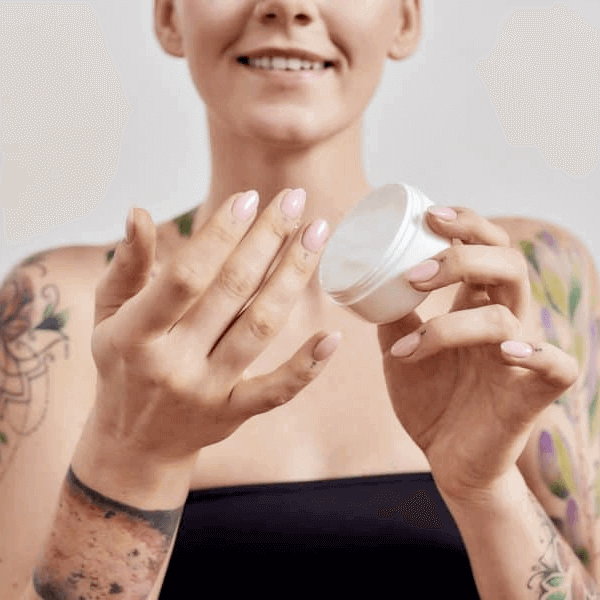
Waxing can create some hair growth issues, as we pointed out earlier, but this happens very infrequently. It is extremely important to drink enough water to keep your skin hydrated after getting waxed.
Related Search: How To Sleep With A New Tattoo
Aside from that, here are the top aftercare tips:
1. Avoid sun: Even after applying sunscreen, you should make every effort to avoid sunbathing. Your skin, which is likely already delicate, can be harmed by prolonged exposure to UV radiation; therefore, you should avoid sunbathing as much as possible and protect your skin by wearing garments that cover it.
2. Avoid waxing a newly etched tattoo: Never, ever wax a newly etched tattoo. Not only will it damage your skin, but it also will cause irrecoverable harm to your newly etched tattoo. Before getting your tattoos waxed, you should give them at least four to six weeks to fully heal.
3. Wear a comfortable outfit: Avoid wearing anything too constricting, especially in the hours immediately following your waxing appointment. Your skin requires space to breathe in order to heal from the ‘trauma,’ you should make every effort to avoid further irritating it by wearing clothing and fabrics that are not breathable.
4. Don’t apply chemical-based lotion: Never apply chemical-based lotions on your newly waxed skin. As was stated before, your skin needs to breathe. Putting anything on it will cause its pores to become clogged, which will make the region more susceptible to being contaminated with dirt and bacteria. In the long run, this could also lead to ingrown hairs.
Also See: 8 Best Lotion For A New Tattoo
5. Use the right products: Use lotions that are light, and are made of all natural ingredients. Products made from natural components are moisturizing and nourishing to the skin. This will help prevent the pores from being clogged.
6. Opt for high-quality wax: Whether you believe it or not, many different kinds of waxes are available in the market. Make sure to opt for the best quality wax. And if you get it done at a salon, make sure they use only high-quality products.
7. Get your waxing done by professionals: If you have tattooed skin, you must have your waxing done by a trained and licensed expert. Experts know how to manage sensitive or newly tattooed skin. Moreover, they will ensure that the waxing procedure causes the least amount of damage and irritation possible.
8. Visit a professional: More often than not, your skin may feel irritated or become red immediately after waxing. You can use cool gel or compresses to alleviate the discomfort and maintain a rejuvenated appearance. However, if it continues to become red, don’t wait; immediately seek medical advice.
Wrapping it up…
That concludes everything there is to know about waxing over a tattoo. We hope that you now understand the circumstances under which a tattoo can be waxed. If you want the greatest results from waxing, you should be sure to get expert waxing services for the skin that has tattoos on it.
Also, after getting your wax done, be sure to follow our aftercare instructions. By adhering to them, you will always be able to have the most vivid and beautiful tattoo at all times!
Happy Tattooing… ☺ ☺

